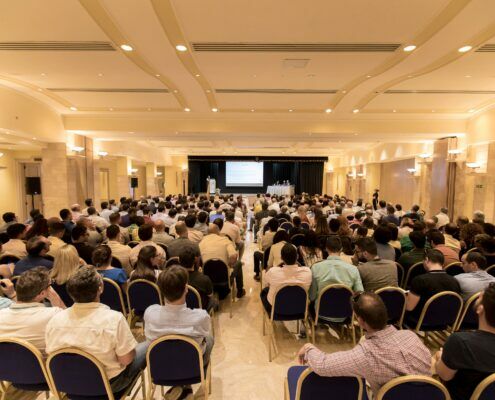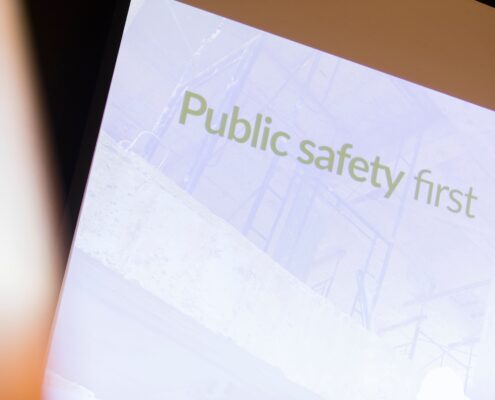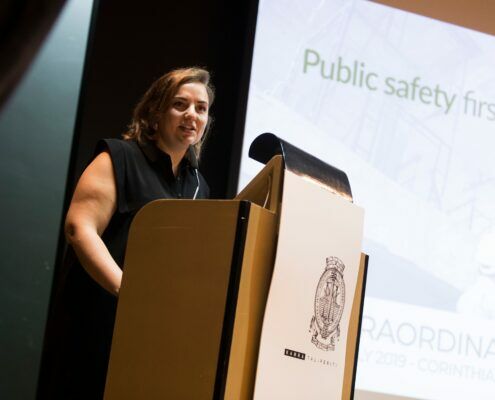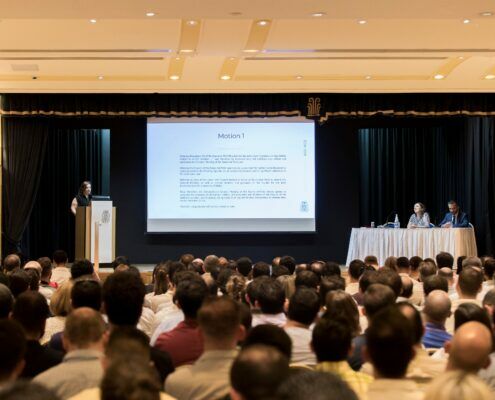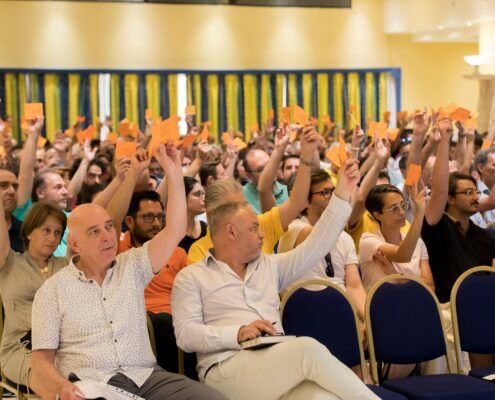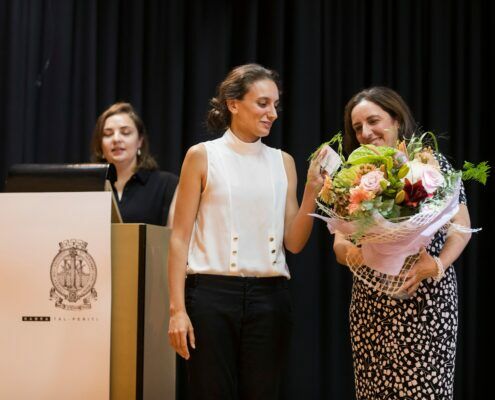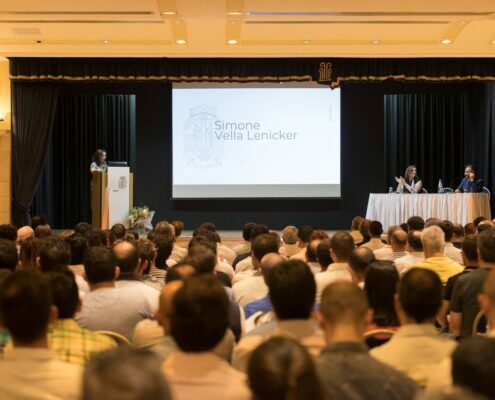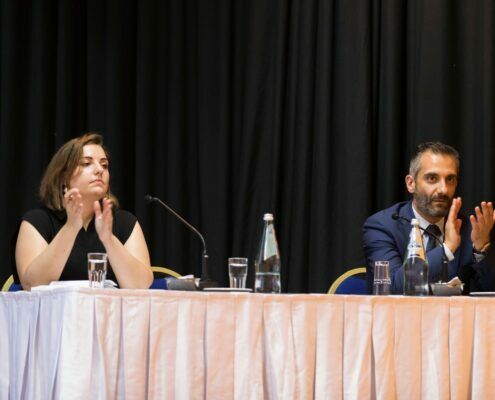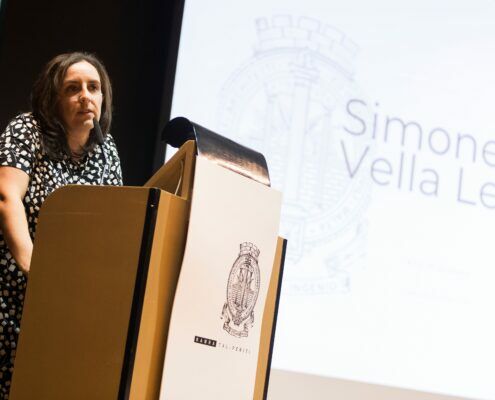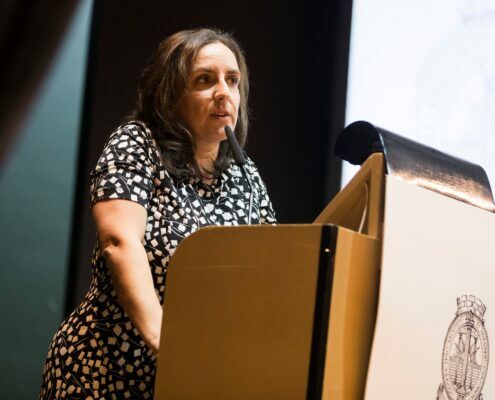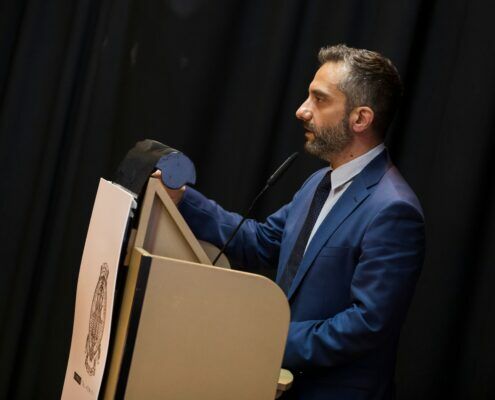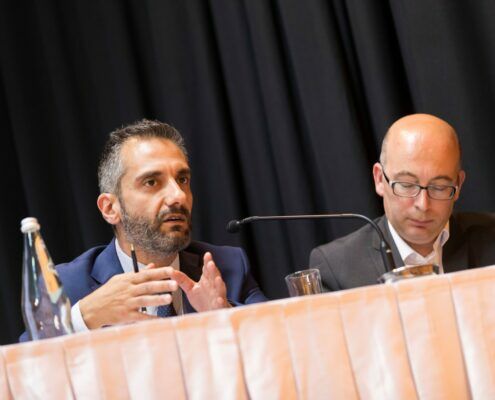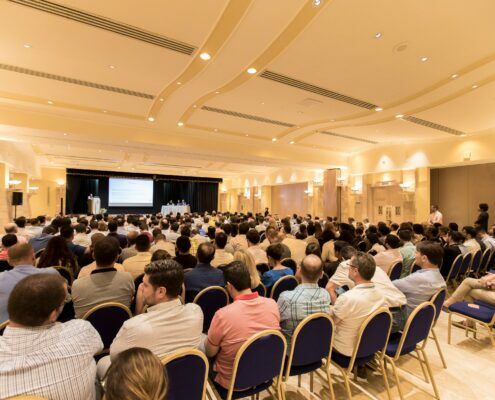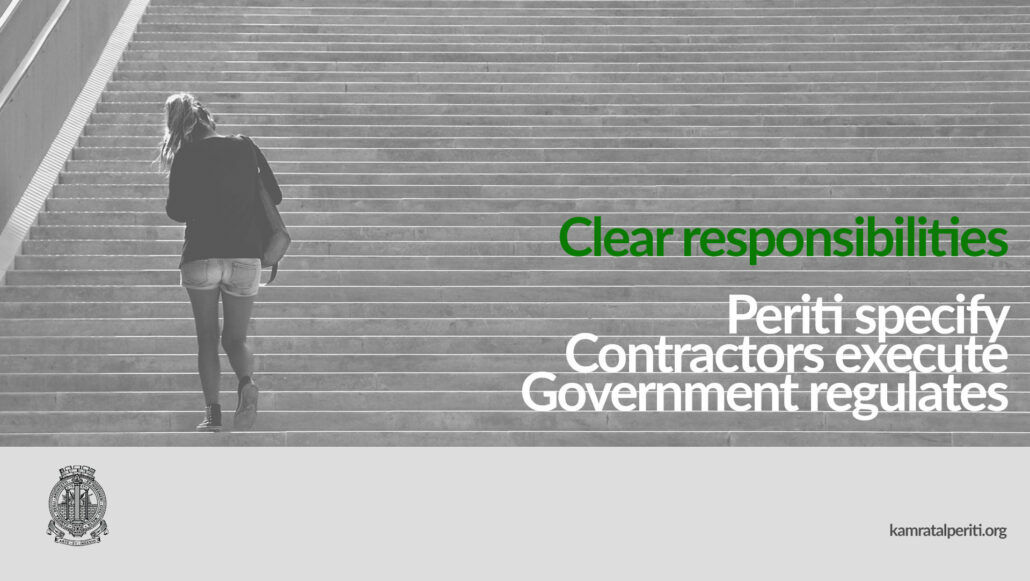PR 22/19 | Periti propose solutions to address industry slowdown
Last Friday, the Kamra tal-Periti held another Extraordinary General Meeting, which attracted around 400 members of the profession. This Meeting was the second in three weeks, with the first being held on the 21st June 2019, and which also attracted a similarly large crowd. Both Meetings focussed on the recently introduced Legal Notice 136 of 2019 regarding the Avoidance of Damage to Third Party Property.
Addressing those present, Perit Simone Vella Lenicker, President of the Kamra tal-Periti, stated that a lot of progress had been made since the previous EGM. The Legal Notice as published included a number of changes from the original draft that addressed some of the Kamra’s concerns during the short public consultation process carried out. She also acknowledged that a major milestone had been reached on Friday morning when Minister Ian Borg and Parliamentary Secretary Chris Agius, together with the Kamra tal-Periti and the Malta Developers Association, announced the setting up of a register of contractors, which will be followed up later this year by the establishment of a system of licensing and classification. This announcement was in no small way due to the Kamra’s insistence that registration, licensing and classification were long overdue, and were one of the reasons why safety and quality on construction sites was often lacking.
The Kamra tal-Periti has taken a leading role in this matter and has drafted its proposals for a new Legal Notice to outline the processes and requirements to attain the necessary goals, and discussions are currently under way with Government on these proposals. During the EGM, Perit André Pizzuto, Vice President of the Kamra tal-Periti, outlined the proposed system, which will start off with three Registers: Building Construction, Excavation and Demolition Contractors. These would then be further classified on the basis of risk, as defined in MSA EN 1990, namely High, Medium and Low Risk. When undertaking a project, the perit in charge would commission or carry out a risk assessment and would indicate the type of contractors required to carry out the envisaged works.
The Kamra’s proposal retains the figure of the Site Technical Officer introduced with LN 136 of 2019, however the minimum qualifications held by such person would depend on the risk category in which the contractor is registered. The proposals made by the Kamra for registration, licensing and classification were approved by the EGM, and the Council was given the go ahead to continue to pursue their introduction with Government. These proposals are expected to address the current slowdown being experienced by the industry following the overly hasty introduction of the new regulations on the 25th June 2019, particularly on sites where demolition and excavation works cannot proceed without the appointment of a Site Technical Officer.
The EGM also unanimously agreed that there are a number of points with regard to Legal Notice 136 of 2019 that need to be addressed without further delay. These include primarily: the role, responsibilities and competences of the Site Technical Officer; a clear division between the Works Specifications that must be prepared by a perit, and the Method Statement which must be prepared by the contractor in order to state how the Specifications are to be implemented and achieved; a clearer distinction between temporary and permanent works; and also the removal of various inconsistencies between the Maltese and English versions of the Legal Notice. The Kamra tal-Periti will be seeking further meetings with Government this week to address such issues.
Meanwhile, the Kamra tal-Periti received letters of support for its position from the international community of architects, namely from the International Union of Architects (UIA) and the Union of Mediterranean Architects (UMAR). Both organisations commended the Kamra tal-Periti for its work to ensure that historically established lines of responsibility on construction sites, in accordance with international practice in all developed countries, are maintained and strengthened.

